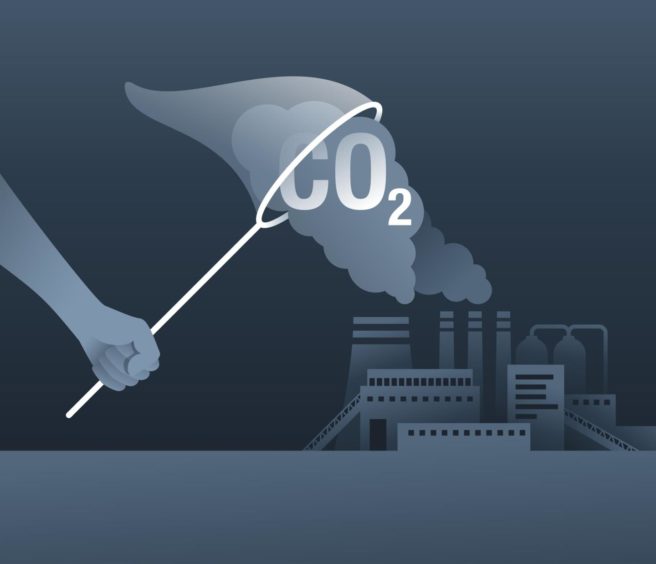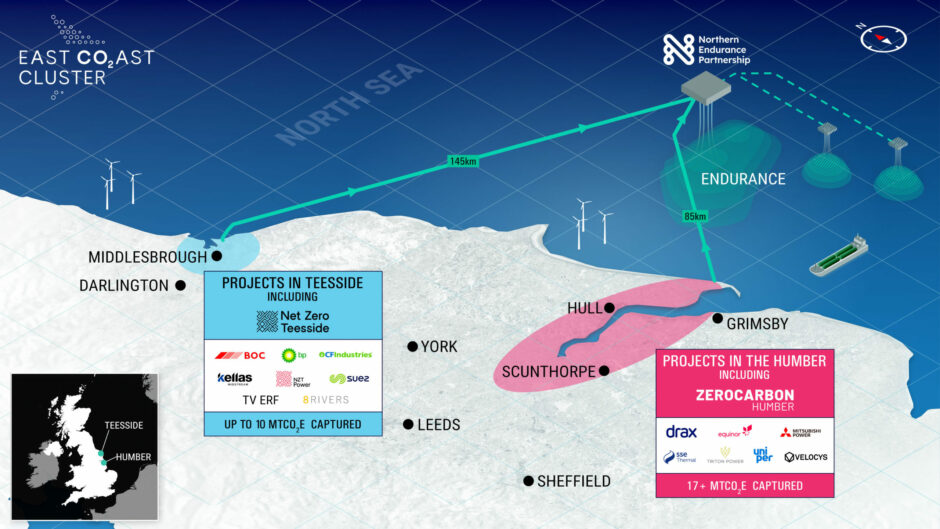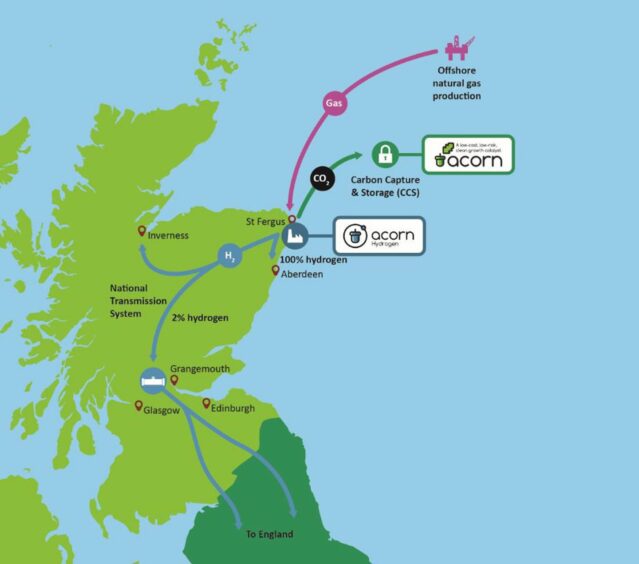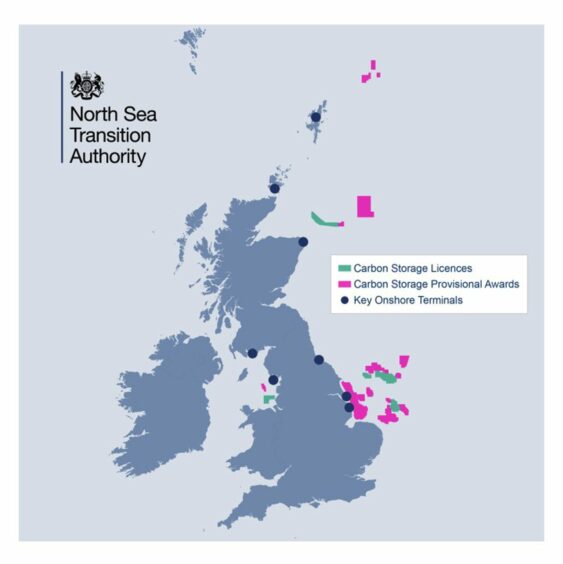
A survey carried out by The Crown Estate and Crown Estate Scotland found that the UK carbon capture utilisation and storage sector has ambitions to bring 37 projects online by 2035.
By 2050 respondents to the survey indicated a total of 62 projects to be up and running by 2050.
The two organisations behind the survey explained: “From those developers who responded, their ambition is to bring up to 37 stores online by 2035, with an additional 25 by 2050.”
Of the 22 developers contacted by The Crown Estate and Crown Estate Scotland, 15 answered the questions.
Responses indicated a “positive signal” for government CCS targets, the two organisations said.
Sian Wilson, head of offshore development for Crown Estate Scotland, said: “The findings of this engagement with key industry partners confirms both the appetite and some of the requirements needed to take CCUS to the next level.
“In doing so, the UK’s vast carbon storage potential can play a central part in helping to achieve net zero targets.”
Industry ambitions are ‘no surprise’
Ruth Herbert, chief executive of the Carbon Capture Storage Association (CCSA) said that given the UK’s targets for the sector, the level of interest from industry comes as “no surprise.”
Ms Herbert said: “Industry is already investing significant amounts of at-risk capital to develop a world-leading CCUS industry right here in the UK, despite delays in the Government timetable.
“To drive further private sector investment in developing CO2 stores, government needs to provide clear messages, decisions and direction on the next stages of the domestic programme as well unlock the potential Europe-wide CO2 storage market.”
The CCSA boss added that the level of deployment indicated by respondents is “essential” for the UK’s road to net zero and it “has the potential to protect 77,000 and create 70,000 good quality jobs across the UK.”
The UK government looks to store up to 30 million tonnes of carbon dioxide by 2030.
Current projects
In 2021, the UK government split £1 billion between The East Coast Cluster and HyNet as it announced the two projects were the winners of its Track 1 funding round.
Both projects look to cut the country’s carbon emissions by the middle of the decade.
The East Coast Cluster looks to decarbonise industrial emissions around the Humber and Teesside and has the potential to transport and securely store nearly 50% of all UK industrial cluster CO2 emissions.
HyNet is a project backed by Italian operator Eni that aims to remove industrial emissions from north-west England and north Wales.
Interest across the whole of the UK
Respondents showed an interest in developing carbon capture infrastructure “in all regions of the UK continental shelf, with the Southern North Sea being of particular interest,” the results show.
Developers were questioned on the number of stores, volumes and rates that they hope to achieve by 2035 and 2050, as well as the opportunities and challenges of meeting those targets.
This was reflected in the announcement of the successful CCS licensing round bids earlier this year, with the licenses being handed out across UK waters.
There were 13 areas offered off the coast of Aberdeen, Teesside, Liverpool and Lincolnshire in the southern North Sea, central North Sea, northern North Sea, and East Irish Sea as part of the process, which kicked off last summer.
Streamlining leasing and licensing
The survey findings indicate a call for a more streamlined process for the leasing and licensing of storage sites.
For projects in Scotland, such as the proposed Acorn development in the north-east, Crown Estate Scotland is in charge, while The Crown Estate takes responsibility for this in England, Wales and Northern Ireland.
Licensing in the sector is managed by the UK regulator, the North Sea Transition Authority (NSTA).
Crown Estate Scotland and The Crown Estate said that the findings of their survey showed strong developer appetite that will support progress toward the UK Government’s Sixth Carbon Budget targets, with the results being shared with the Department for Energy Security and Net Zero, NSTA, and the Scottish Government.
Nicola Clay, head of new ventures marine for The Crown Estate, said: “CCUS has a key part to play in the UK’s journey to net zero.
“This market engagement, and the data it has provided, will prove invaluable when it comes to shaping the UK’s carbon storage sector, and will enable The Crown Estate, Crown Estate Scotland, Government, and NSTA to continue guiding the market toward injection.
“We look forward to working with industry and other partners to develop this exciting sector and make the most of the opportunity that carbon storage provides.”
CCS rollout in the UK
This year saw the UK’s first-ever carbon capture licensing round, with 20 bids being approved by the NSTA.
A total of 12 companies received offers for licenses from the regulators, however, not all of them announced whether they had accepted.
Neptune Energy confirmed all three of its licence applications were successful, since the announcement, Neptune has been in talks with Italian energy giant ENI as the latter looks to take over the Aberdeen-based firm.
EnQuest also confirmed it had secured four licenses, while Synergia Energy and Spirit Energy received one each.
There was tough competition around the Southern North Sea and Perenco managed to bag a successful bid.
The Anglo-French independent confirmed it has received offers for carbon storage licences from the NSTA.
Recommended for you


 © Supplied by The Crown Estate
© Supplied by The Crown Estate © East Coast Cluster/ BP
© East Coast Cluster/ BP © Supplied by Storegga
© Supplied by Storegga © Supplied by NSTA
© Supplied by NSTA